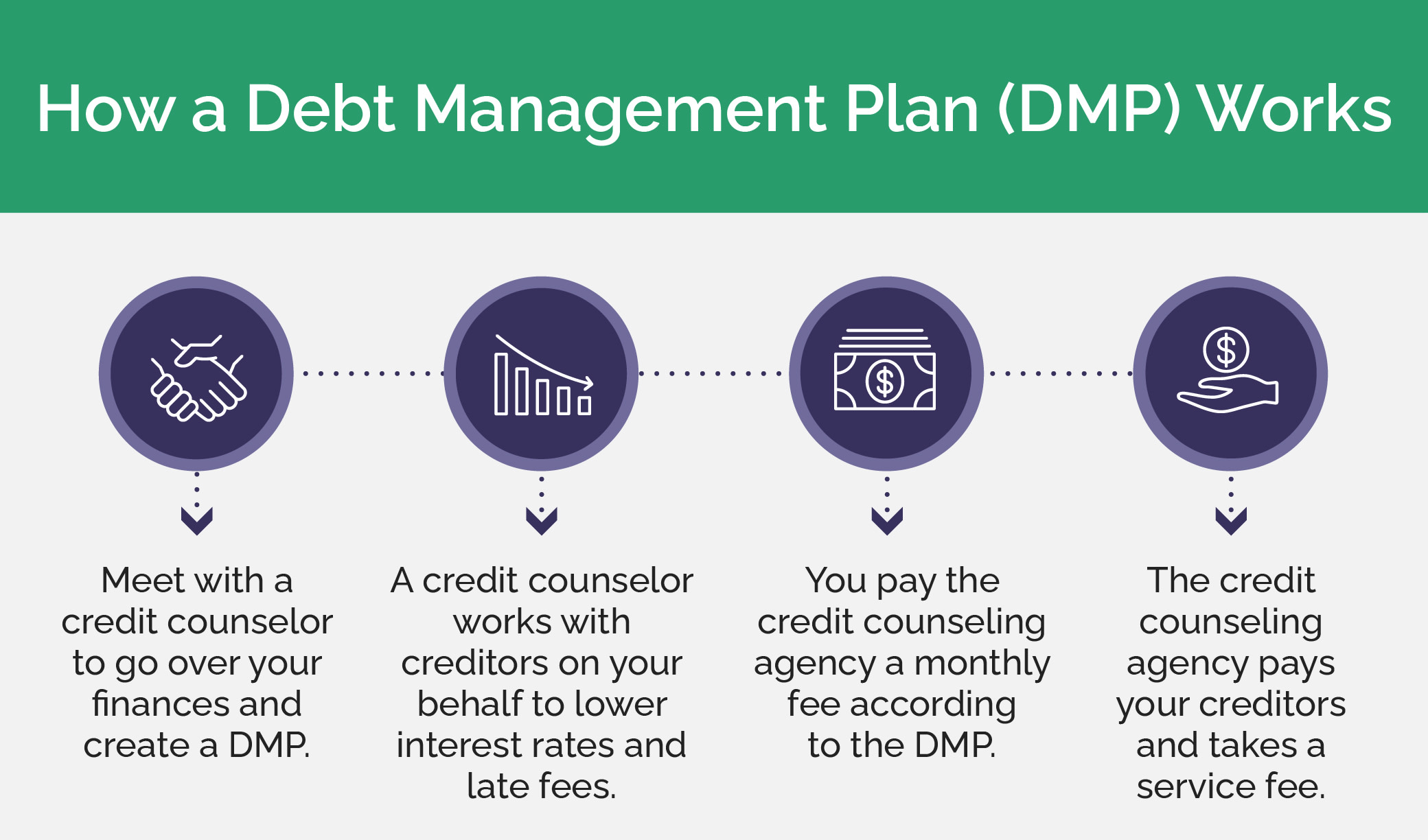Success Stories: Just How Debt Management Plan Services Transformed Financial Lives
Success Stories: Just How Debt Management Plan Services Transformed Financial Lives
Blog Article
Specialist Tips and Techniques for Executing a Successful Financial Debt Administration Strategy
When it involves browsing the complexities of financial debt administration, having a well-thought-out plan is essential for accomplishing financial security. Implementing professional suggestions and strategies can make a significant distinction in your trip in the direction of financial obligation relief. From examining your current monetary standing to negotiating with financial institutions, each step plays a crucial duty fit a successful financial debt management strategy. By understanding the intricacies of financial obligation monitoring and embracing tested methods, individuals can lead the way for an extra safe economic future.
Analyzing Your Existing Financial Situation
Before getting started on a financial debt monitoring plan, it is important to extensively examine your existing monetary standing. Recognizing your financial scenario is the foundational step in the direction of effectively handling and reducing your financial obligation.

Creating a Realistic Spending Plan
Understanding your existing monetary circumstance lays the groundwork for establishing a reasonable spending plan that lines up with your debt monitoring goals and economic abilities. When producing a budget, it's important to accurately track your revenue, expenses, and financial debt responsibilities. By categorizing your expenditures, you can identify locations where you may need to reduce back to free up funds for financial debt settlement.

Prioritizing and Tackling Financial Debts
To efficiently restore control of your finances and work towards economic stability, focusing on and tackling your financial debts is a crucial step in your financial debt management strategy. Identify high-interest financial debts that are costing you the most cash and prioritize paying them off.
After determining your high-interest debts, consider using methods like the debt snowball or debt avalanche technique to pay them off methodically. The financial debt snowball approach involves paying off the smallest financial obligations initially, while the debt avalanche technique focuses on financial obligations with the highest possible rates of interest. Choose the method that aligns ideal with your economic goals and motivates you to maintain making progression.
In addition, consider working out with creditors for lower rates of interest or establishing a layaway plan if you're battling to satisfy your current responsibilities. Looking for assistance from a credit history counselor or economic expert can also provide valuable understandings and guidance on how to effectively tackle your financial debts - debt management plan services. By prioritizing and addressing your financial obligations purposefully, you can lead the way in the direction of a debt-free future and boosted economic health
Negotiating With Lenders
When taking part in financial obligation management, discussing with creditors is an important action in the direction of discovering equally helpful services for financial obligation payment. Open interaction with lenders can bring about revised payment strategies, decreased rates of interest, or also settlement offers. Before starting negotiations, it is important to have a clear understanding of your financial situation, including your income, expenditures, and the total quantity of debt owed. This info will not only assist you make sensible offers yet likewise demonstrate to lenders that you are committed to solving the financial debt.

Structure Healthy And Balanced Monetary Routines
Incorporating constant budgeting techniques is essential for growing healthy financial practices. Budgeting allows individuals to track their income and costs, allowing them to make enlightened decisions regarding their monetary priorities. Setting certain financial goals, such as saving for emergency situations or retired life, can supply a clear roadmap for taking care of cash effectively.
Another trick facet of structure healthy and balanced monetary routines is living within one's means. This includes investing less than what is gained and avoiding unneeded debt. Embracing a thrifty attitude and differentiating in between wants and needs can assist individuals make more sensible investing choices.
On a regular basis keeping an eye on and assessing monetary statements credit rating records are critical habits that advertise monetary understanding and responsibility. By remaining notified regarding their financial standing, people can recognize potential issues early and take positive internet actions to resolve them.
In addition, establishing a financial savings practice, despite little quantities, can add dramatically to long-term monetary protection. Conserving frequently not just constructs an economic cushion for unexpected costs however also cultivates a feeling of self-control and responsibility in the direction of cash administration. By constantly exercising these routines, people can lay a strong foundation for a stable monetary future.
Conclusion
To conclude, executing an effective financial debt monitoring plan requires a thorough evaluation of one's financial situation, the development of a practical spending plan, prioritizing and tackling debts, working out with financial institutions, and building healthy economic routines (debt management plan services). By following these professional tips and techniques, individuals can take control of their finances and work towards attaining monetary stability and flexibility from debt
Recognizing your existing monetary scenario lays the foundation for creating a reasonable spending plan that aligns with your financial debt management objectives and economic capacities.To successfully regain control of your financial resources and job in the direction of monetary security, focusing on and tackling your financial debts is a critical step in your financial obligation management plan.After recognizing your high-interest financial obligations, consider utilizing approaches like the financial debt snowball or financial debt avalanche approach to pay them off methodically. The financial obligation snowball method involves paying off the tiniest financial debts initially, while the financial obligation avalanche technique prioritizes financial debts with my response the highest interest prices.When involving in financial debt monitoring, discussing with lenders is a vital step towards locating mutually advantageous services for debt settlement.
Report this page